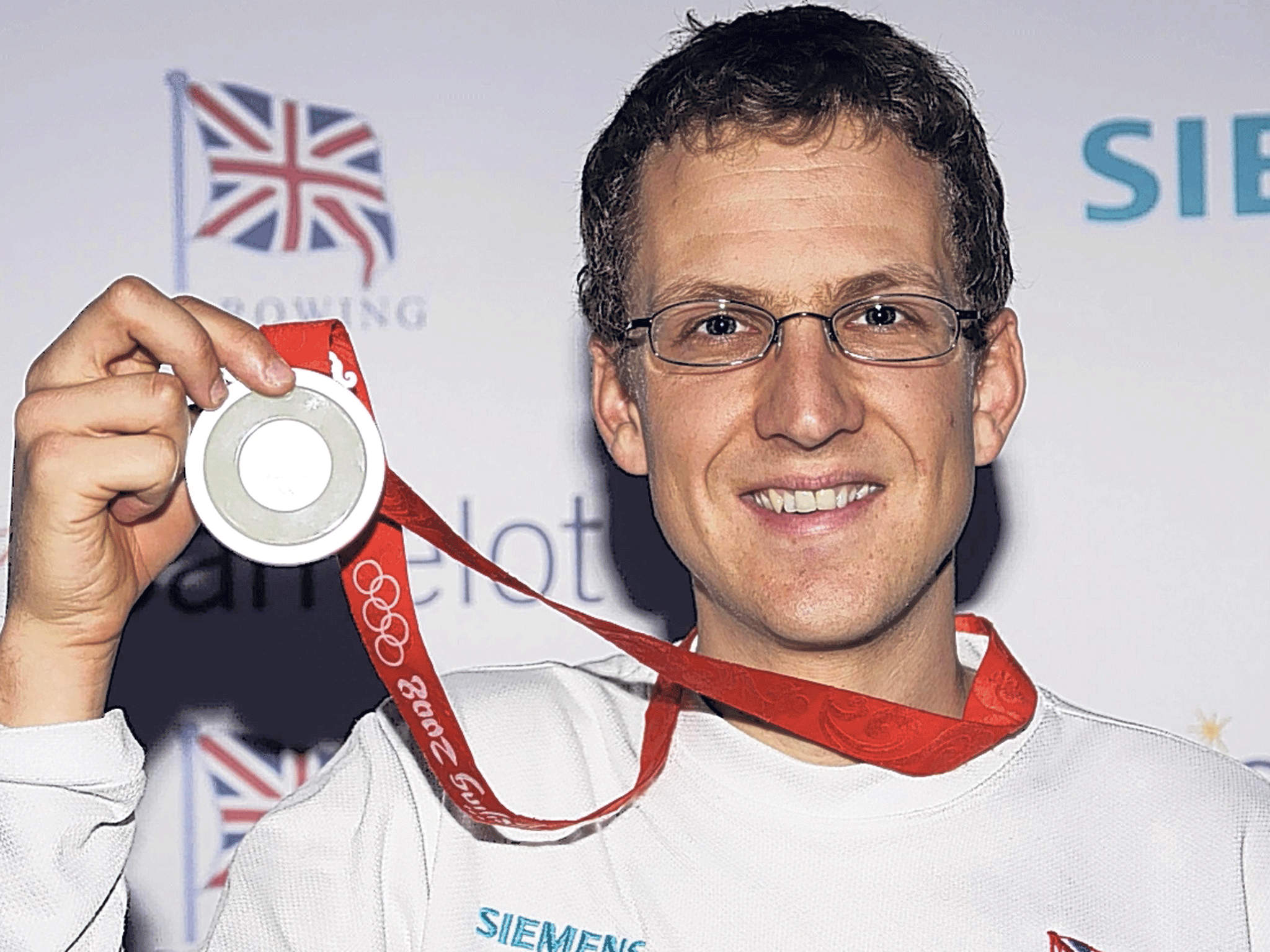Dr Acer Nethercott: Olympic rowing cox and noted academic

Your support helps us to tell the story
This election is still a dead heat, according to most polls. In a fight with such wafer-thin margins, we need reporters on the ground talking to the people Trump and Harris are courting. Your support allows us to keep sending journalists to the story.
The Independent is trusted by 27 million Americans from across the entire political spectrum every month. Unlike many other quality news outlets, we choose not to lock you out of our reporting and analysis with paywalls. But quality journalism must still be paid for.
Help us keep bring these critical stories to light. Your support makes all the difference.
Acer Nethercott was a rowing cox who excelled in the worlds of sport and academia. He won an Olympic silver medal with the men's eight at Beijing in 2008, and the Performance Director of GB Rowing, Sir David Tanner, described him as "the top British cox of his time".
Nethercott was born in Newmarket in 1977 and grew up in Harlow. Following education at Mark Hall Comprehensive and Broxbourne he went up to University College Oxford to read Theoretical Physics and Philosophy. On graduation in 2000 he was awarded the Top First, together with the Gibbs Prize in Philosophy. After a year in the United States as a teacher and rowing coach, he returned to Oxford where he obtained his B.Phil in 2003 and embarked on a doctorate.
Nethercott had taken up rowing during his first year at university but soon moved to the coxswain role because of his physique, steering the women's heavyweight team to victory against Cambridge in 2000.
His former coach, Dr Conall Mac Niocaill, told The Independent, "Acer could light up your whole day with five minutes of banter about pants, philosophy, and his beloved Arsenal. He had a passion for life and an infectious enthusiasm that rubbed off on everyone he met. He took up coxing for fun and, in typical fashion, turned out to be brilliant at it."
In 2003 he coxed Oxford to victory in the Boat Race; in a thrilling finish Oxford won by a foot. John Adams, a team-mate, said of him: "Acer was a brilliant scholar, a sportsman of unrivalled focus and a very loyal friend, qualities that he brought also to his protracted struggle with brain cancer. He was his own man – one of a kind and will be sorely missed."
He won the 2004 seat after a tense competition with Peter Hackworth, the winning cox in 2002. In the event Oxford lost by six lengths following a dramatic clash of blades and the unseating of their bowman. The 2005 race saw an epic struggle: Christopher Dodd, reporting for this newspaper, noted Nethercott's use of colourful language to spur on the team.
"He was warned once by the umpire Boris Rankov after the first minute and once after the mile opposite the Crab Tree just when he had invoked an unprintable quotation from Pulp Fiction, a trigger to which his crew responded with a 20-stroke push that took them half a length ahead again." Oxford went on to win in an impressive 16 minutes 41 seconds.
"It certainly feels a lot better today than it did 12 months ago," Nethercott said afterwards. "Cambridge are a great crew but they came up against the big guns today. They have a great technique, but we were never just the big grunters we were made out to be in the build-up."
The Boat Race victories consolidated his renown and led him on to the international stage. In 2008 he won World Cup bronze at Lucerne and gold at Poznan, as well as silver in the World Championships in Munich. Successfully juggling his academic life with his love of the sport – he was a member of Molesey Boat Club in Surrey – Nethercott had written an 80,000-word doctoral thesis on "The Semantics of Complex Demonstratives" and received his Doctorate in the Philosophy of Language/Linguistics just one day before the team flew out to Lucerne that year.
The peak of his sporting career came in August 2008 at the Beijing Olympics. where the British men's eight beat the US – Olympic champions at the time – in the heats. They went on to win silver, just behind the Canadians. The team's bowman, Alex Partridge, enthused, "We've just won an Olympic silver medal, and I just rowed in the most enjoyable crew I ever rowed in, the best nine guys and the best two coaches. I couldn't ask for a better Olympic experience."
Nethercott's family said in a statement: "We were truly proud of him, not just for his achievements but also for how kind, generous and influential he was to so many he met and made an impression upon. Whilst taken from us far too early he really did lead a full life due to his verve and determination which resulted in elite academic and sporting achievements, as well as travelling the globe."
Di Ellis, Chairman of British Rowing, said: "Acer was a young man who always appeared as an independent spirit with a sense of fun but once in the boat was a determined competitive cox for his crew whether club, university or country."
Acer Gary Nethercott, rowing cox and academic: born Newmarket 28 November 1977; died 26 January 2013.
Subscribe to Independent Premium to bookmark this article
Want to bookmark your favourite articles and stories to read or reference later? Start your Independent Premium subscription today.
Join our commenting forum
Join thought-provoking conversations, follow other Independent readers and see their replies
Comments